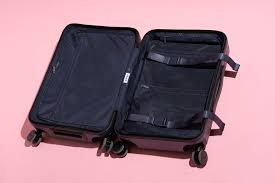When choosing luggage, the eternal debate between hard shell and soft case materials can make or break your travel experience. Both options have passionate advocates, but which one truly offers superior protection for your belongings? The answer depends on your specific travel needs, destinations, and what you’re packing.
The Hard Shell Advantage: Maximum Impact Protection
Hard shell luggage, typically made from materials like polycarbonate, ABS plastic, or aluminum, excels in situations where your belongings face direct impact threats. These rigid exteriors create a protective barrier that prevents crushing forces from reaching your packed items. If you’ve ever watched baggage handlers toss suitcases onto conveyor belts, you’ll appreciate why this matters.
The waterproof nature of most hard shells provides excellent protection against spills, rain, and humidity. This makes them ideal for beach destinations, tropical climates, or any situation where moisture exposure is likely. Additionally, hard cases maintain their shape regardless of how they’re packed, which means your clothes come out looking relatively wrinkle-free compared to soft alternatives.
Security also favors hard shells. The rigid construction makes it significantly more difficult for opportunistic thieves to slice through the material, and the zipper mechanisms are often more robust and tamper-resistant.
Soft Case Benefits: Flexibility and Convenience
Soft luggage, constructed from materials like ballistic nylon, canvas, or polyester, offers a completely different set of advantages. The primary benefit is flexibility – both literal and practical. Soft cases can expand slightly to accommodate extra items, and their exterior pockets provide easy access to frequently needed items without opening the main compartment.
Weight is another crucial factor. Soft luggage typically weighs considerably less than hard shell alternatives, leaving more room in your weight allowance for actual belongings rather than the case itself. For frequent travelers who need to maximize packing efficiency, this difference can be significant.
The ability to squeeze soft luggage into tight spaces – overhead bins, car trunks, or hotel room corners – makes them more versatile for varied travel situations. They also tend to be more affordable while offering better organization options through multiple compartments and pockets.
Weather Protected: Environmental Considerations
Your destination’s climate plays a crucial role in material selection. Hard shells dominate in wet environments, offering complete water resistance that soft cases struggle to match even with water-resistant coatings. However, soft cases handle temperature extremes better, as they don’t become brittle in cold conditions or expand in heat like some plastics might.
For dusty environments, hard shells provide better sealing, while soft cases may allow fine particles to penetrate through zippers or fabric weaves. Conversely, soft materials are more forgiving of rough handling and don’t show scratches or dents as obviously as hard surfaces.
Professional-Grade Protection: The Specialty Case Solution
For travelers with extremely valuable or fragile items, neither traditional hard nor soft luggage may provide adequate protection. This is where military-grade protective cases like Pelican Case come into play. These specialized containers, originally designed for sensitive equipment transport, offer unparalleled protection through features like watertight seals, pressure equalization valves, and shock-absorbing foam interiors.
These cases typically feature reinforced corners, heavy-duty latches, and construction materials that can withstand extreme conditions including submersion, crushing forces, and temperature fluctuations. While significantly heavier and more expensive than conventional luggage, they represent the ultimate in cargo protection for photographers, researchers, medical professionals, or anyone transporting irreplaceable items.
The trade-off involves weight, cost, and convenience – these cases prioritize protection above all else, making them impractical for typical vacation travel but invaluable for specialized applications.
Making the Right Choice for Your Needs
The decision ultimately depends on your priorities. Choose hard shell luggage if you’re traveling with fragile items, heading to wet climates, prioritize security, or prefer the clean aesthetics and easy cleaning that rigid cases provide.
Opt for soft cases when weight restrictions are tight, you need maximum packing flexibility, prefer organized storage options, or travel frequently on smaller aircraft where space is limited.
Consider your travel frequency, typical destinations, and what you usually pack. Business travelers with electronics might prefer hard shells, while backpackers and budget travelers often find soft cases more practical.
The best luggage is the one that matches your specific travel patterns and gives you confidence that your belongings will arrive safely and securely at your destination.


